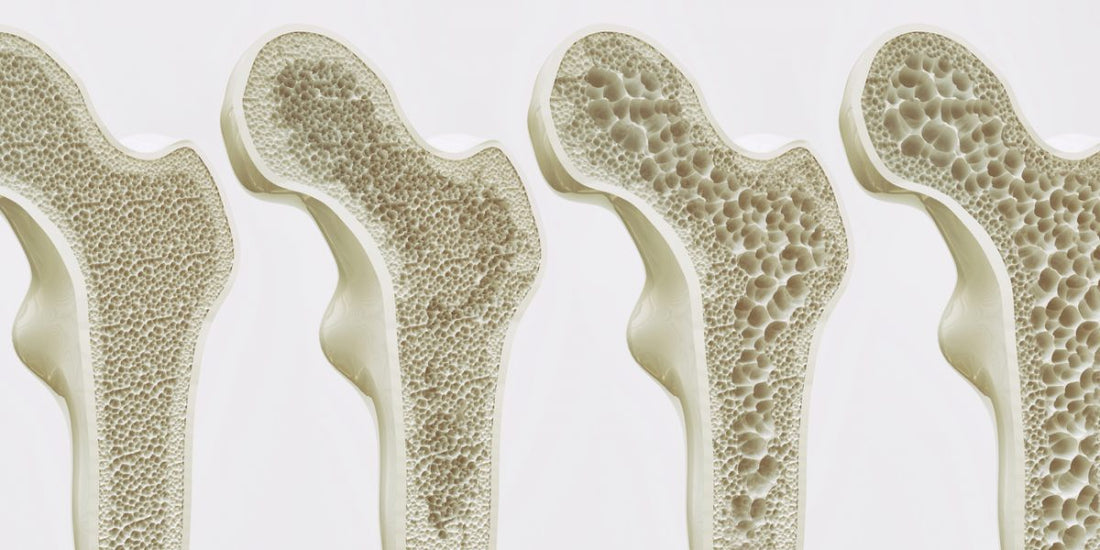Over 1 in 6 people in the US have been diagnosed with or are at an increased risk for developing osteoporosis sometime in their lives. Osteoporosis can happen at any age, but is much more common in postmenopausal women and older adults.
Studies estimate that 1 in 2 women and up to 1 in 4 men over the age of 50 will break a bone due to osteoporosis. These breaks usually occur in the hip, spine, or wrist, causing permanent pain and/or limited mobility.
What is osteoporosis?
Osteoporosis (porous bone) is a bone disease characterized by loss in bone mass and structural deterioration of bone tissue. As a result, your bones become weak and can easily break in a fall, or even sneezing or minor bumps in serious cases.
While you are growing during your childhood and teenage years, your body is constantly adding more bone faster than old bone can be removed in a process called modeling. As your bones reach their peak mass, typically by your early 20s, old bone is removed and replaced at the same site in a process called remodeling. Remodeling prevents too much old bone from accumulating, repairs any cracks or deformities on your skeleton, and is important to allow the skeleton to store calcium and phosphorus. Osteoporosis occurs when bone formation fails to keep up with bone resorption, or breakdown.
Your skeleton needs the same nutritional elements as the rest of your body, but it especially needs large amounts of calcium and phosphorus.
What can I do to prevent osteoporosis?
In addition to exercise, intaking an adequate amount of calcium, vitamin D3, and vitamin K2 can prevent decreased bone density.
Calcium promotes bone density and strength. Vitamin D3 affects your bones directly and is essential for your gut to be able to absorb and maintain adequate amounts of calcium and phosphorus for bone mineralization. Vitamin K2 is necessary for your body to make a protein called osteocalcin, which is responsible for maintaining bone strength. It also prevents calcium from being deposited on the walls of your blood vessels, lowering calcium-associated health risks.
Vitamin K2 is one of the hardest vitamins to consume an adequate amount of due to modern manufacturing processes of food, even if you are eating a well-balanced diet.
Luckily, you can find ample amounts of vitamins D3 and K2 in UB Super Plant Based Protein Superfood Nutritional Shakes. UB Super uses the only registered 100% vegan vitamin D3 as cholecalciferol, which is a potent and active form of vitamin D that the body naturally produces after sun exposure. The vitamin K2 used in UB Super products is designed by Research and Development leaders and have been proven to be effective in human clinical trials.
While we can’t stop the aging process (yet!), we at UB Super can help you prevent osteoporosis by providing you with guaranteed superior ingredients that meet your daily needs.
https://www.veganlifenutrition.com/resource-articles/d3-k2-calcium-combo/
https://www.ncbi.nlm.nih.gov/books/NBK45504/
https://www.ncbi.nlm.nih.gov/pmc/articles/PMC4566462/
https://americanbonehealth.org/nutrition/vitamin-k2-plays-key-role-in-bone-health/

